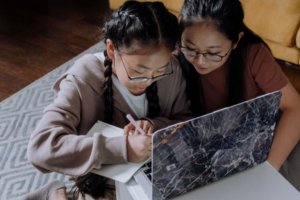Proving the Dyslexia Diagnosis
Written by Sandie Barrie Blackley, Speech-Language Pathologist
Published on November 8, 2012
 The title of an article by Nirvi Shah in the October 5, 2012, edition of Education Week caught my attention: “Feds Receive Record Number of Complaints About Special Education.”
The title of an article by Nirvi Shah in the October 5, 2012, edition of Education Week caught my attention: “Feds Receive Record Number of Complaints About Special Education.”
The article gives a brief overview of the rising tide of complaints received by the U.S. Department of Education’s office for civil rights (OCR). Among them, it cites a case in which “OCR worked with a district that required parents to get medical documentation, at their own expense, supporting the existence of disabilities for their children.”
Nearly every day, Lexercise hears this from parents of struggling readers in all parts of the country. Many of these parents are just beginning to realize that their child’s school may not be able to help their child improve his or her reading, spelling, and writing skills.
Jillian Levy cites her own difficult experience in the article, “Treatment Myths, An Inconclusive Diagnosis, and Dyslexia: My Struggle for Help.” Without adequate guidance, her parents did their best to support her, but it was not until she was a junior in high school that Levy was conclusively diagnosed with “dyslexia and other learning disabilities.”
So why don’t parents get professional evaluations for their children who struggle to read, write and spell?
A number of reasons:
- Many parents rely on their child’s school for guidance. But public schools do not diagnose; they categorize (in 1 of 13 categories).
- Unfortunately, public school teachers, nurses, and administrators are not trained to recognize the spectrum of symptoms that may signal dyslexia, nor are they given adequate resources for referring affected children. Schools tend to respond in a one-size-fits-all-disabilities approach. A mother who contacted us recently told us that while her son has fallen further and further behind, the boy’s teachers have told her there is “no test for dyslexia.” She finally went online to look for help. (Clearly, there are exceptions: public schools with educators who have stepped outside business-as-usual and created a model program; but that is certainly not the norm.)
- Dyslexia is still poorly understood by the public. Myths abound and the need for professional evaluation is not intuitively obvious for families who might be told that their child is “lazy,” “isn’t trying,” “needs a tutor,” or has a poorly defined learning disability.
- Many parents don’t know where to turn for a professional evaluation. Professionals who are qualified to test for and diagnose dyslexia include psychologists, speech-language pathologists, and clinical educators, but not all individuals with those titles have the specialized training it takes to administer this kind of testing.
- Like Jillian Levy’s family, parents may take their child to a pediatrician, an optometrist, or for psycho-educational testing. The typical psycho-educational battery is not designed to diagnose anything; rather, it is designed to determine if a student is eligible for federally defined, tax-supported, public school services.
- The cost of a professional evaluation may be prohibitive for some families.
The National Center for Learning Disabilities and the National Institutes of Health have crystal-clear, science-based guidance for both how to diagnose dyslexia and how to treat it. Yet for decades, psychologists, educators, speech-language pathologists, and even some physicians have been trained to think about struggling learners using only the vague, poorly defined construct, learning disabilities.
In her forthcoming book, Disabled Education: A Critical Analysis of the Individuals with Disabilities Education Act, Professor Ruth Colker traces the history of the term learning disability and explains how inconsistent, vague, and confusing applications of this term have led to the current “mess.” Read the first chapter here.
Professor Colker points out that, by definition, children categorized as learning disabled may have very different disorders (e.g., dyslexia, specific language impairment, traumatic brain injury, or even autism spectrum disorder). Yet schools call them all by the same label, learning disabled, and may group them together for intervention. Since the evidence-based treatment approaches for these disorders differ greatly (some could be described as polar opposites), it is not surprising that group treatment for learning disabilities leads to “inadequate remedial efforts.” Professor Colker addressed this topic in a Lexercise Live Broadcast: The Learning Disability Mess.
We urge parents not to depend on public school services alone, but to seek research-based help for their child. This must start with a language processing evaluation and a clear diagnosis.
Lexercise provides online help for struggling readers, writers, and spellers — no matter where they live! Take a look at our Online Dyslexia Testing and Treatment page or contact us at Info@Lexercise.com or 1-919-747-4557.
Improve Your Child’s Reading
Learn more about Lexercise today.
Schedule a FREE
15-minute consultation


